
Fact, Angelo Badalamenti's "The Voice of Love" is my favourite piece of film music ever. It's from the score to one of director David Lynch's very best (yet, very underrated) films - Twin Peaks: Fire Walk With Me and it is featured in the very last scene of the movie as Laura Palmer, realising her fate, sits in The Red Room. I've included the clip below. Don't worry if you haven't seen the movie (or, more importantly, the television series) as there aren't any spoilers other than - shock - Laura is dead, but if you didn't already know that then I assume you a) don't know the first thing about Twin Peaks and b) you don't care. So no matter what you position in the Twin Peaks universe is (Masterly Scholar or Peak Virgin) watch the clip below and enjoy some beautiful music. If you are new to the Peaks universe then surely this clip will entice you.
Just for the record, this scene probably takes the top spot on my non-existent theoretical Best Ending Scenes of All Time list. It's so beautiful and moving and haunting and Sheryl Lee is amazing.
Now, the 1980s were a very exciting time for those two love, cherish and worship synthesised music scores. The two most famous composers of this variety of film score were Vangelis (Chariots of Fire - you know that music - and Blade Runner - simply amazing) and Angelo Badalamenti who has an incredibly tight relationship with David Lynch ever since he worked on the music to Lynch's 1986 masterpiece Blue Velvet.
Below is a scene of that movie featuring the song "Mysteries of Love". Music by Badalamenti, vocals by another Lynch frequenteur Julee Cruise.
I could write an entire essay on the music to the television series Twin Peaks (y'all know that opening theme music), but this is a film music entry, so I'll skip.
As the synthesised score died, it seemed only Lynch and Badalamenti continue to utilise it in film. Jumping forward to 15 years after Blue Velvet and nine after Fire Walk With Me, Badalamenti produced one of the finest film music scores ever, again for a David Lynch film - Mulholland Drive.
In a day and age where synthesisers can sound incredibly dated (they will never grow old for me), it seems like a risk to make one as the major hooks of your film. And it is just that, a hook. Film scores these days rarely have such a defining place in a movie. Sure, they're important and sometimes they can be amazing and sometimes they're not, but it's not common to find a film is actually better for having it's score in place (think of the likes of Psycho or Jaws or any other film that has one of those clear and definable themes).
Badalamenti's Mulholland Drive music doesn't have one singular piece of music that defines the rest of the score, but the culmination of Badalamenti's work on the film raises the film. Can you imagine this movie with any other music? I would think not. Can you imagine being set with such atmospheric unease as "Mulholland Drive"? Or that ending as being so romantically tragic without "Love Theme"? Or would the Silencio sequence be less enigmatic and scary without Badalamenti's bass-filled terror enducing "Silencio"? Would Betty's (Naomi Watts) arrival to LAX be as good without the hopeful beauty of "Mr Roque - Betty's Theme"? I truly doubt it. Badalamenti's score is such an intricate key to developing the dreamlike mysterious world of Lynch's Los Angeles.
Below are two clips from Mulholland Drive. One is the afore-mentioned Club Silencio sequence, which is a masterpiece in it's own right of the mix of visuals and audio. Then we have a fan-made clip using "Diane and Camilla" put over the top of various scenes from the movie.
I hope that Badalamenti continues to work with Lynch and that their partnership brings around many more equally amazing music. And here's hoping that the synthesised score makes a return! I've mentioned before about how happy I am that electronic music is being used again for film scores (The Fountain and Danny Boyle's Sunshine) so we're just one step away! Obviously, it's not to say that synthesisers are the only tricks up Badalamenti's sleeve. He routinely uses other more traditional forms of scoring in Lynch films as well as outside of the Lynch world. But, it's just a fact that when discussing Lynch and Badalamenti the mind instantly jumps to this sort of sub-section of music.
PS; How shocking was it that Badalamenti still has no Oscar nominations to his name. He's one of the most note worthy film composers out there. Even his work in the '80s, when synthesised scores were all the rage, he didn't have any luck. That crazy music branch will surely be making it up to him someday.

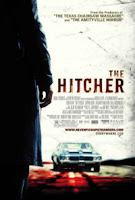
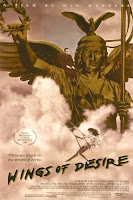
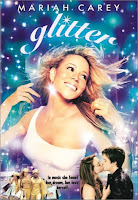
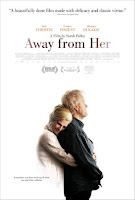
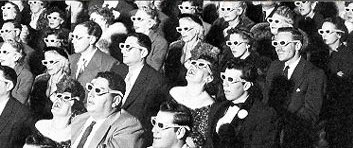
3 comments:
Thanks, this has got me SO in the mood to watch Inland Empire tonight.
Hehehe.
Though if I go in expecting Mulholland levels of greatness, I'll probably end up disappointed.
Angelo Badalamenti is perhaps my favourite film composer. I find his work with Lynch truly sublime. I was listening to Julee Cruise's Floating Into The Night for years before I discovered David Lynch (which was when I saw Lost Highway in 1997).
Badalamenti has a very recognisable sound and enjoy hearing it in subsequent Lynch films. In my opinion, Lynch's Fire Walk With Me is perhaps his most under-rated films, and one of my favourites. And Twin Peaks is my favourite TV series, which I discovered 10 years after its release.
heres an interview with Badalamenti, discussing him acting in a scene in Mullholland Drive...
at the end of the clip he sits down & plays the theme on the piano - beautiful!
http://www.youtube.com/watch?v=a_9D5PiOjog
Post a Comment